Introduction
Entrepreneurs face a mix of obstacles and chances when maneuverin through the grocery market scene today as people lean more towards health and ease in their shopping choices.The way we shop for groceries is changing quickly with a rise, in buying according to recent surveys.As more shoppers opt for options this trend is making established businesses rethink their game plans to stay ahead in the tough competition.
This article explores the factors to keep in mind for individuals interested in buying a grocery store – from grasping market trends and evaluating financial feasibility to understanding the reasons for a potential sale. By examining these aspects thoroughly and gaining valuable insights from them; prospective purchasers can equip themselves with the information needed to make well informed choices and capitalize on opportunities in this ever evolving industry sector – ultimately laying a foundation, for sustained prosperity in the long run.
Understanding the Grocery Store Market
'The food retail environment is transforming rapidly due to evolving consumer preferences and industry changes. Recent findings from our survey of over 2,000 U.S. consumers in April 2024 reveal a significant rise in online food shopping. A remarkable increase in the number of participants who purchased food online in the 12 months prior to the survey indicates a growing trend that potential buyers should consider when evaluating their options.'.
'In today's environment where individuals are concentrating more on health and convenience in their selections as consumers continue to choose for alternatives and ease is a crucial element to contemplate in the decision-making process of products or services presented to them by enterprises in reaction to current trends and future forecasts based on the data collected from our survey.'.
Moreover, research indicates that rivalry in the sector is intensifying with the rise of budget-friendly food stores and the consolidation of food chains. Looking ahead to 2023 it's evident that inflation is influencing how consumers spend their money as 84 % of people worldwide are willing to reduce expenses. These findings highlight the significance of pinpointing areas for growth, in the food retail sector enabling buyers to make educated choices that meet the changing demands of their customer base.
Investigating the trends and possibilities in the retail sector enables potential shoppers to better understand market dynamics and customer trends, allowing them to successfully navigate this constantly evolving landscape.
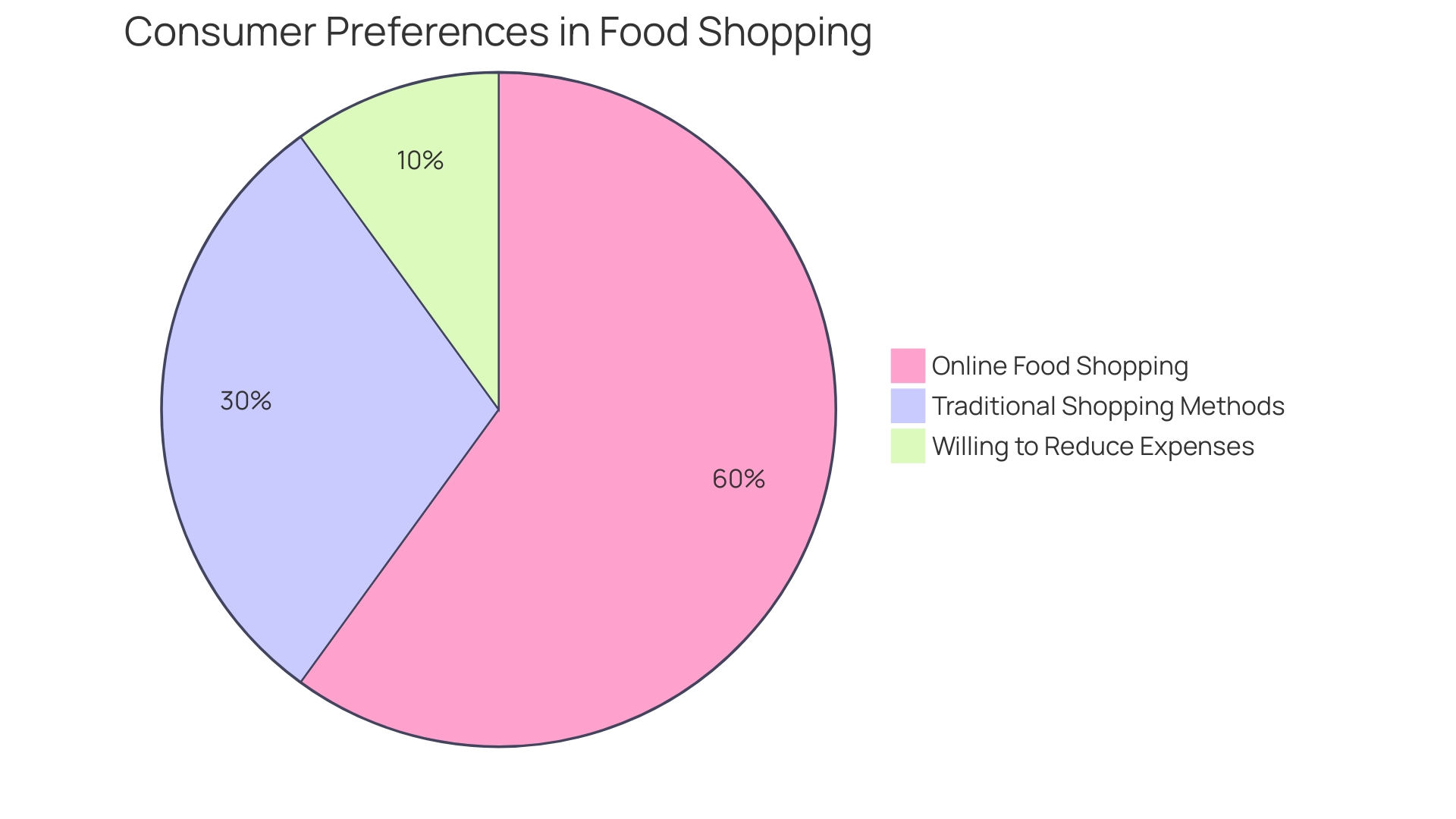
Key Questions to Ask Before Buying a Grocery Store
When you choose to purchase a grocery business and embark on that endeavor of yours, it's essential to ensure you have the information readily available first and foremost. Begin by investigating the financial condition of the shop. Get a good grasp of its profit margins which usually fall between 1 to 3 percent. This will provide you with a valuable insight into how profitable it can be, for you.. Don't forget about the customers who frequent the store! Understanding who they are and what they like will help in tailoring your products to meet their needs in the way possible.
Moreover it is important to assess the competition in the region. Achieving success in the food retail sector often relies on the location and the ability to stand out in a market. Given that consumer habits always changing retailers need to adjust and come up with new ideas to remain competitive. For example current patterns show an increasing desire for omnichannel shopping experiences. This change provides a chance for supermarkets to draw in and keep customers by providing a mix of, in person and online shopping choices.
In the realm of grocery trade today, asking the appropriate questions from the start can determine whether your company flourishes or misses out on opportunities. By grasping these elements well, you can confidently make choices that set the stage for future achievements.
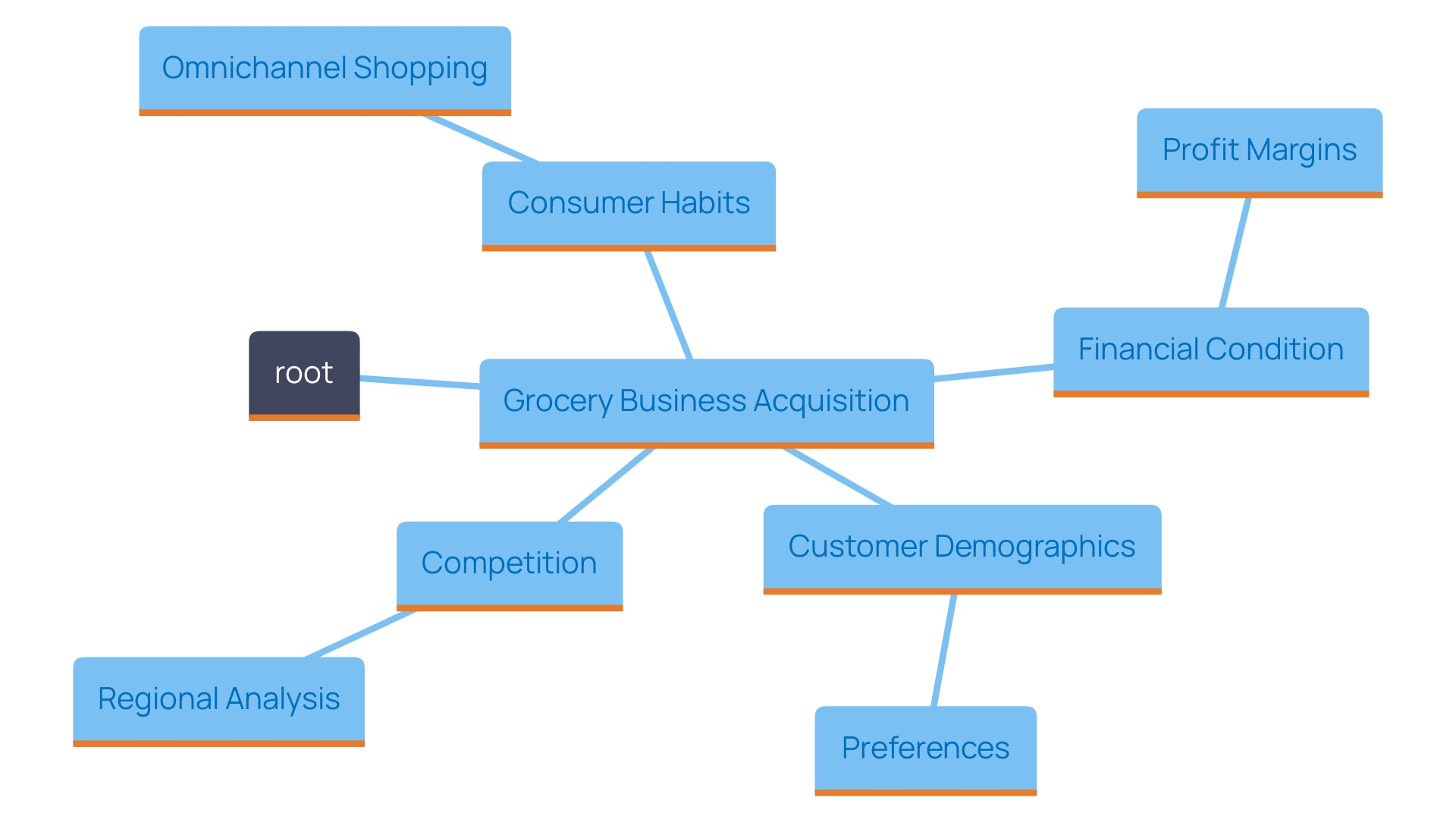
Why is the Current Owner Selling?
'To make informed choices when acquiring a property from a seller is crucial to understand the reasons driving their decision to sell it in the first place—be it retirement plans or a desire for a new beginning following a difficult time period as these factors heavily influence how you should plan your approach.'.
Having a plan to exit is crucial when making decisions like this one according to Abhijeet Kaldate who wisely said that "Not preparing is just getting ready to fail." This emphasizes how essential it is to have a thought out strategy in place. Those selling their stake might decide to sell off for reasons. Maybe to take advantage of market chances or just to move forward to the next phase, in their lives.
Timing is essential when it comes to determining the value of a sale in the commercial realm. Comprehending when demand peaks can significantly enhance how your enterprise is perceived and valued. According to Stephanie Wells' guidance; by envisioning where your venture will stand in five or ten years can give you an understanding of its actual value. This insight can guide you in deciding whether it's the time to sell your enterprise or not.
'Valuing a company correctly is crucial for success in transactions. Owners sometimes err by depending on gut feeling or random numbers. This can result in undervaluing or overestimating their entity. Hiring an expert appraiser ensures a fair market value assessment.'. Boosts the chances of a favorable deal.
In the realm of competition and commercial settings, understanding these factors not only helps in obtaining a beneficial agreement but also provides you with the capacity to make knowledgeable decisions about your future strategies and direction.
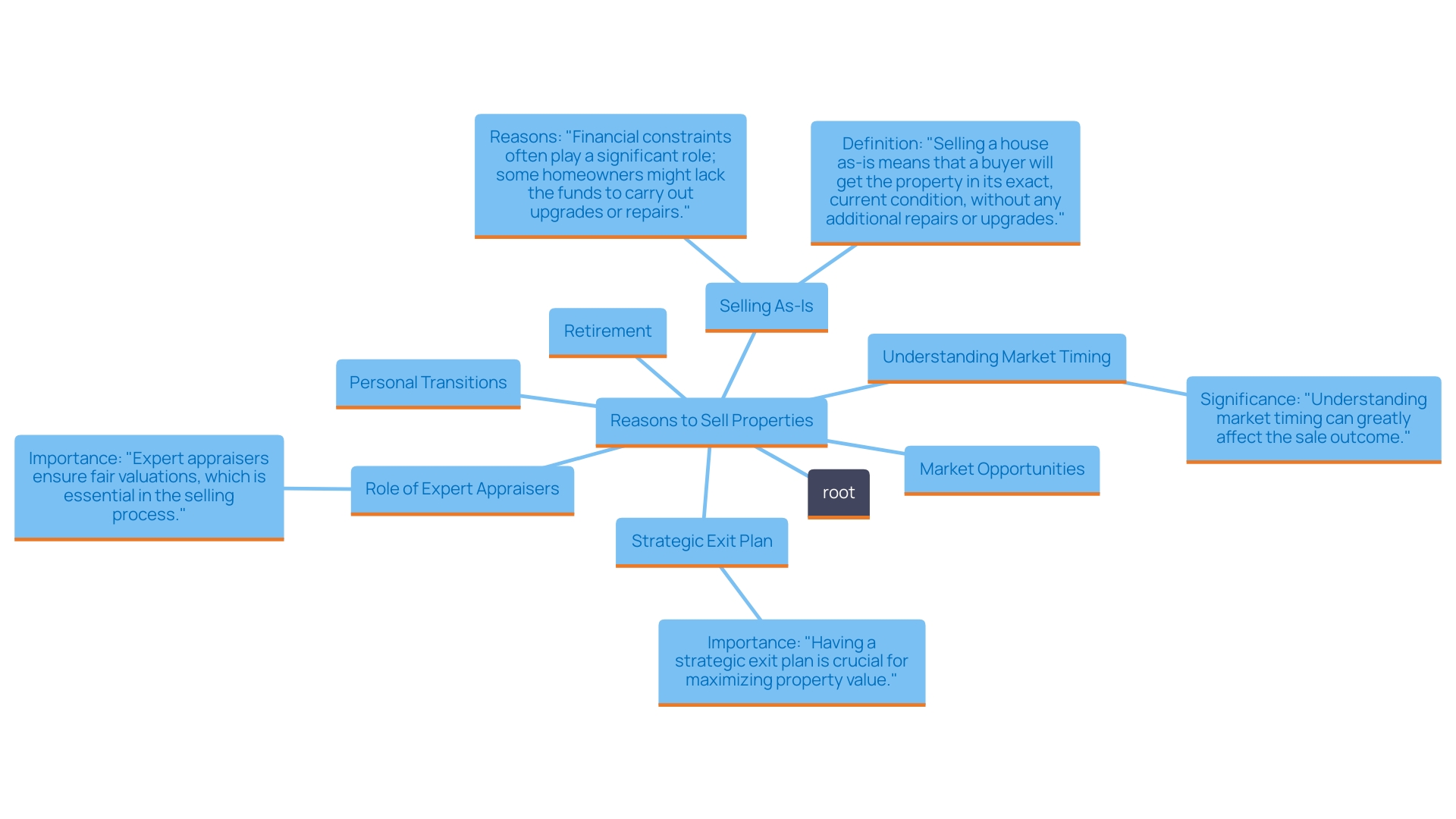
What Does the Sale Include?
When you're looking to purchase a company, it's important to know exactly what comes with the deal. This includes more than the stock and tools. It also involves leases and reputation. Having a list of all items, in stock helps you figure out the true worth of what you're getting and reduces the chances of unexpected costs popping up later.
Buyers frequently seek to perform due diligence to ensure they grasp the true value of an enterprise before making any financial commitments. According to negotiation expert Chris Voss insight highlights the importance of being well prepared and aware when dealing with the intricacies of selling a business. He emphasizes that thorough planning and strategic thinking can greatly impact how negotiations unfold.
Furthermore it's vital to keep in mind that the selling process may take a while and consists of stages. Numerous sales agreements incorporate provisions that permit either party to withdraw if certain conditions are not fulfilled like the buyers capability to obtain financing. That's why it's crucial to have all details clearly outlined and recorded to guarantee a transaction and prevent unforeseen hurdles.
Having a strategy not only builds rapport, with prospective buyers but also lays the foundation for a productive negotiation process. With transparency regarding the sale contents you gain the confidence to actively participate in conversations and ultimately reach a positive agreement.
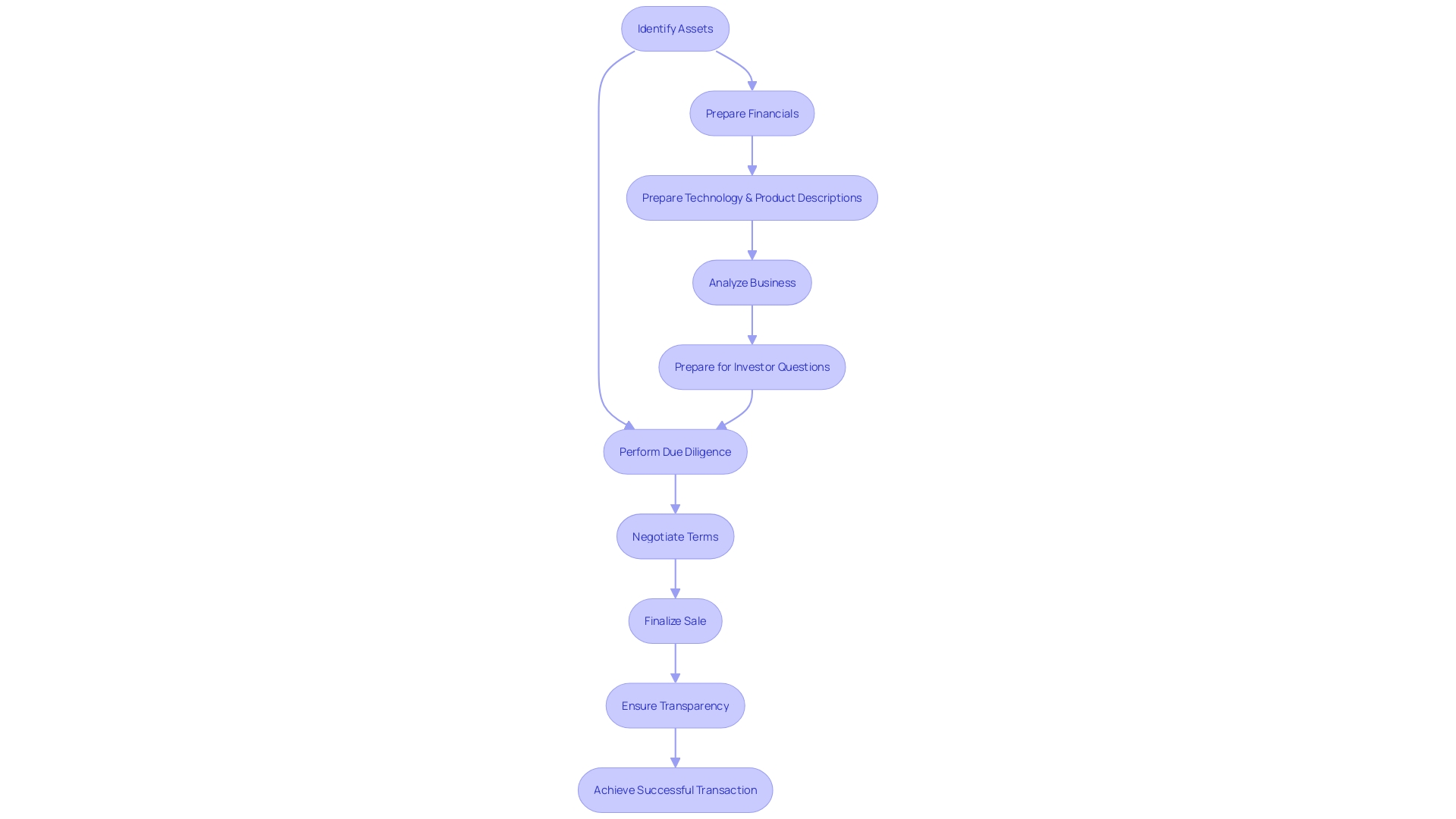
Financial Planning and Costs
When considering purchasing a grocery store it is important to conduct a financial evaluation that includes examining ongoing operational expenses,revenue projections and cash flow needs for long term sustainability
It's essential to have a grasp of the financial environment out there; take grocery stores as an illustration. Their profit margins usually fall between 1 to 3% and this can be affected by things like where they're situated or their size and what products they offer in their inventory! Creating a financial projection is essential because it allows you to gauge how much you might earn and assists in making knowledgeable choices throughout the process; this projection must consider the distinct elements at work in your local environment, such as the degree of competition and what influences consumer behavior.
Overseeing stock levels is vital for managing costs, in operations such as supermarkets dealing with the challenge of perishable goods impacting profit margins by as much as 40%. However as time passes and freshness declines actual returns may decrease substantially resulting in discounts and potential wastage emphasizing the significance of inventory management to reduce losses and boost profits.
Watching market trends and economic conditions is crucial as well In recent studies show a change in how consumers buy things with more people leaning towards buying groceries online This shift creates opportunities for profit but also brings about challenges that demand quick reactions, from entrepreneurs
When you assess a purchase at a grocery store thoroughly from a standpoint it's not just about understanding the immediate costs and revenues; it also helps you anticipate changes in the market ahead of time effectively too.. 'The knowledge you gain can set a foundation for your strategy, which in turn allows you to make well-informed choices that enhance your chances of achieving success over time.'..
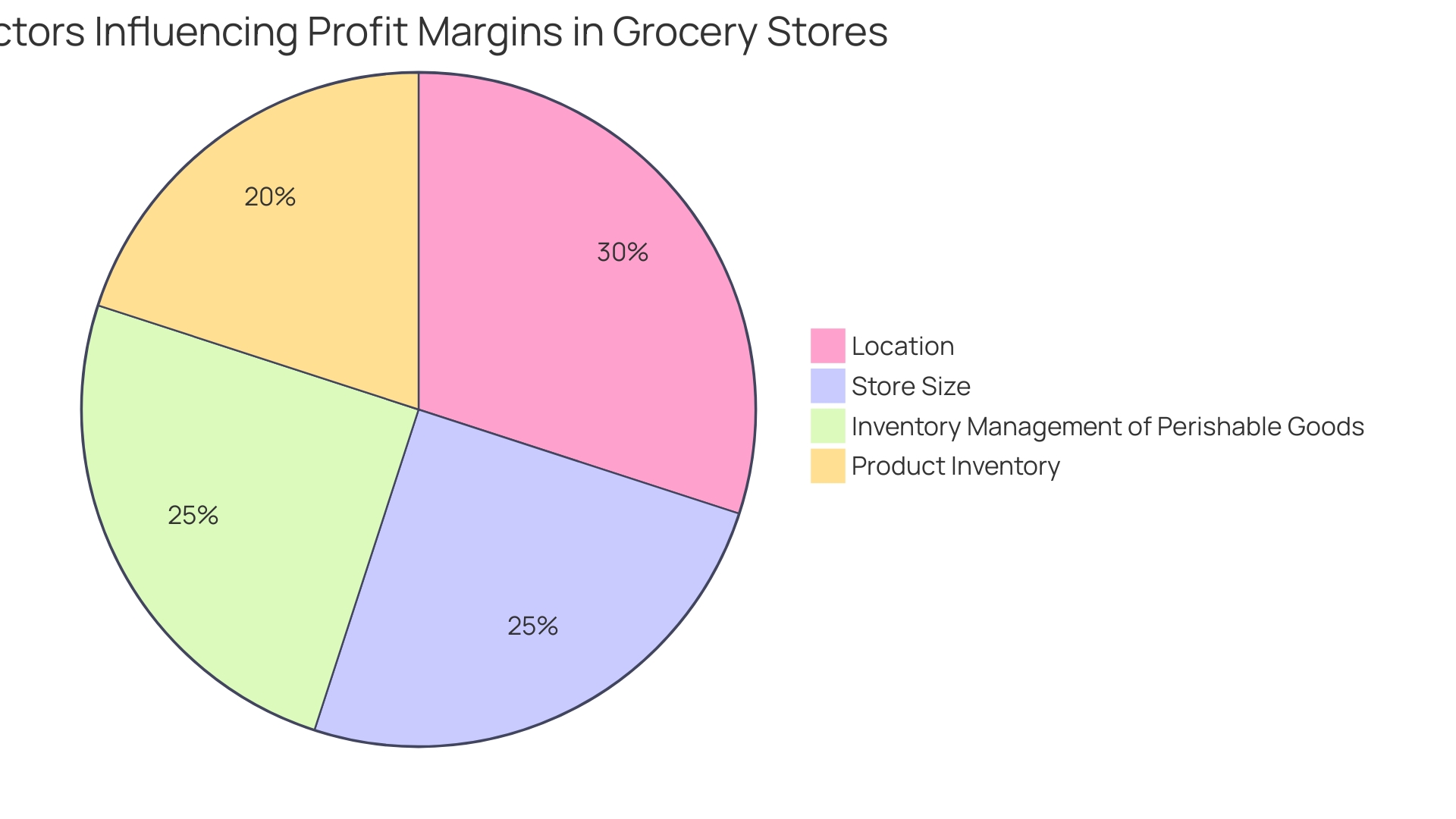
Initial Inventory and Supply Chain Costs
Managing the expenses associated with stocking up on inventory and building connections with suppliers are key elements for running a successful store. Being fully aware of your inventory requirements from the beginning helps in meeting customer needs. Having a business plan in place is crucial—it should clearly define your customer base target segment as well as your product selection and pricing approaches—these factors play a significant role, in efficient inventory control.
Using up to date inventory management software can simplify this task by helping you keep track of stock quantities and sales as well as monitoring shipments in real time. This live data can assist you in making purchasing choices and cutting down on unnecessary expenses. For example a small local shop that implemented this type of software managed to compile an inventory catalog. When faced with a crisis, such as an event the shop promptly furnished the essential details to their insurance provider.This sped up the claims procedure. Lessened the time lost due, to the incident.
Furthermore, the significance of updating and auditing your records should not be underestimated. Maintaining an up to date inventory not safeguards your resources but also improves your overall productivity. When expanding your network of suppliers prioritize nurturing connections that can evolve alongside your expanding requirements. A thriving enterprise is more than about stocking goods ; it’s about being able to promptly adjust to shifts, in the market and customer demands.
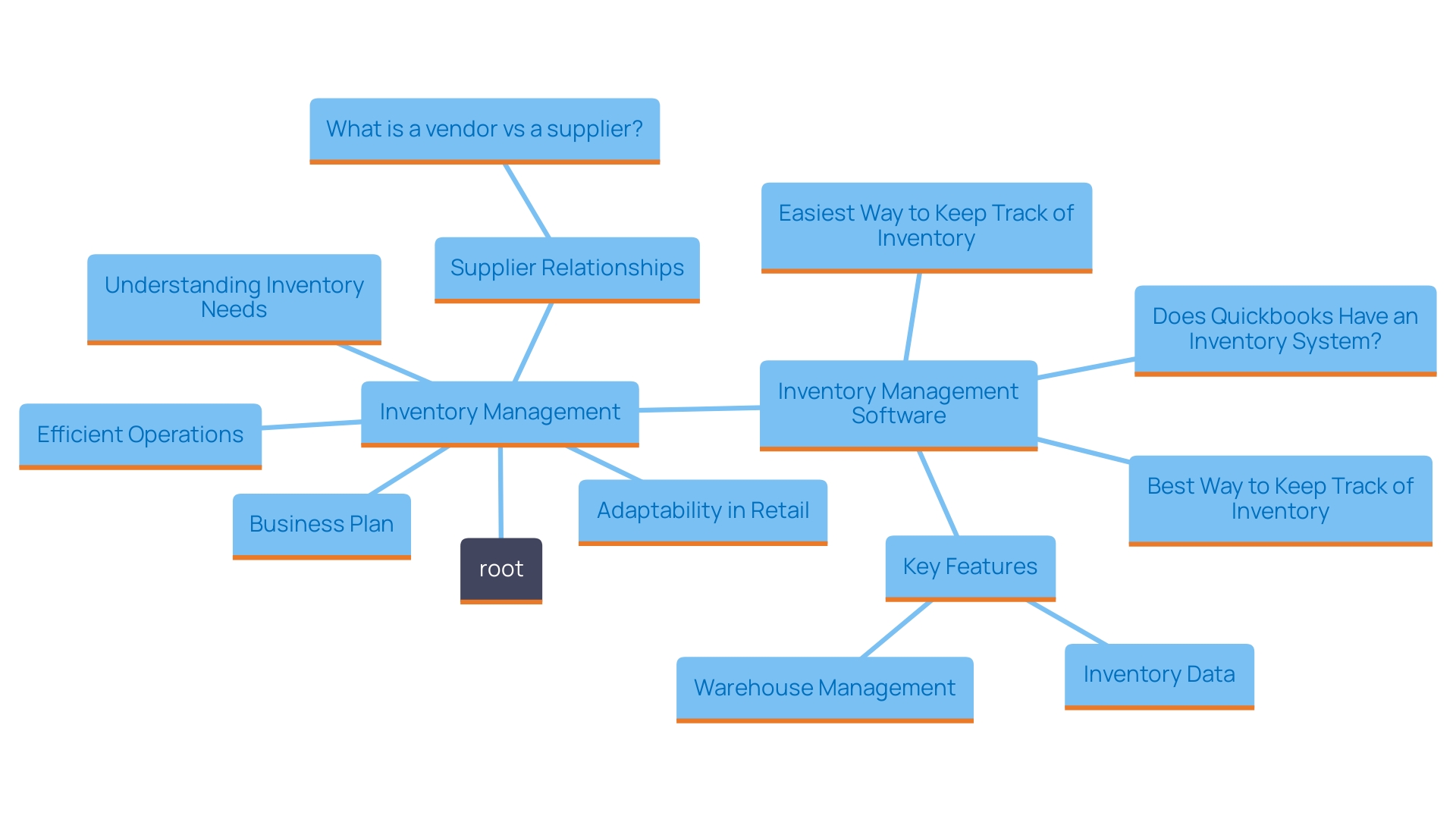
Licenses and Permits
To start a grocery business successfully and legally in any location, it’s important to have a grasp of the legal requirements involved from the get go. Make sure you are well versed in the licenses and permits needed for your area as this information is key to steering clear of any legal issues later on. For example, in San Francisco there are rules that 'formula retail’ businesses. Frequently retail chains. Must follow under Section 303. 1 Of the Planning Code. This description refers to establishments with eleven or more outlets worldwide that share consistent characteristics such as available products, for sale, and aesthetics.
To start, adhering to these guidelines is vital not only for safeguarding your enterprise but also for enhancing its prospects of flourishing. Developing a business plan can serve as your guidebook in navigating the various stages of starting and expanding your food store. Study the needs of the market thoroughly; pinpoint your intended customer demographic and outline the products you offer while keeping an eye, on competitors and consumer tastes.
Profit margins in the grocery sector usually fall between 1 to 3%. Being well versed in these obligations can assist you in honing your management techniques and operational efficiency to boost your stores profits effectively. "It's important to remember that sufficient preparation is crucial for positioning yourself for success as you dive into this opportunity and work towards building a thriving venture.".

Asset Sale vs. Equity Sale: Choosing the Right Transaction Structure
Choosing the kind of transaction arrangement for selling your enterprise plays a crucial role in shaping your investment plans success. Whether you go for selling assets or equity shares comes with benefits and drawbacks that can have a big impact, on your financial obligations and risks.
One example is when you sell assets to transfer resources while keeping some liabilities to reduce risk selectively; on the other hand; selling equity means selling your ownership stake in the entire operation and could result in unexpected responsibilities after the sale.
Abhi Kaldate emphasizes the importance of looking to the future of your venture before making any decisions about an offer on the table. Think about where you see your company heading in the next five to ten years and weigh that against any attractive proposals that come your way.
In addition to that point I mentioned earlier about getting ready for a sale? It's all about paying attention to the little things and being really well prepared for whatever may come your way when dealing with all the intricacies involved in the process. Making sure everything is sorted out with your finances and operations can definitely help things go smoothly as you move forward with the sale. One important step is conducting an assessment of your company in relation to others that have recently been sold in the market. Experts recommend this approach as it can potentially help you get the best possible price, for your sale.
It's also helpful to seek advice from experts who can assist you in understanding the intricacies of different transaction formats. Their knowledge can shed light on both the non financial consequences associated with your preferred approach and provide valuable perspectives to influence your sale strategy. Ultimately making an informed choice regarding the transaction setup is crucial for a smooth transfer.
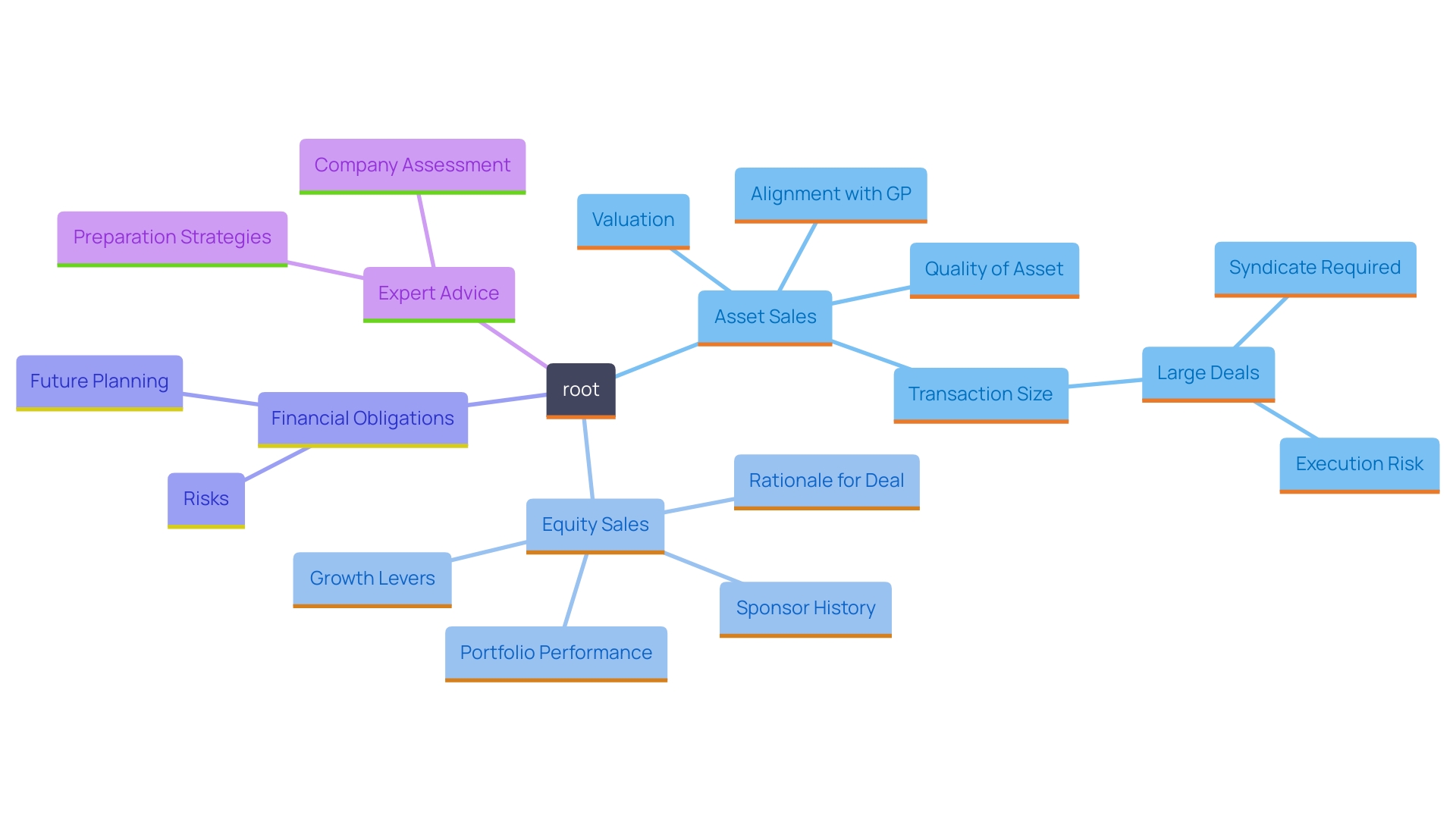
Asset Sale Advantages and Considerations
Investors who are wise to the game see an asset sale as a move for nabbing certain parts of a company's goods while also dodging any nasty debts from the past that might come back to haunt them later on down the road. This tactic lets buyers handpick the bits, like machinery and stock or even intellectual property to make their investment journey smoother and more efficient.
Understanding the specifics of selling an asset can significantly enhance your decision-making process in professional matters. For example this approach doesn't lower risks but also follows the current trend of companies concentrating on their strengths. As James Peters, the Founder and CEO of Global Expansion points out "Selling off assets can be a strategy, for firms seeking to streamline operations or secure funding."
'Moreover, selling assets can be beneficial in the current setting as companies often need to adapt swiftly to shifts in the economy. Customizing your acquisitions to fit your strategic goals can lead to enhanced financial outcomes and greater opportunities for expansion.'.
Research shows that companies that strategically acquire assets tend to be more successful in combining them effectively and improving operational efficiency, which is key for ensuring long term viability, in a dynamic market environment.
Selling assets offers advantages and sets you up well for future expansion by helping you create a strong portfolio aligned with your goals.
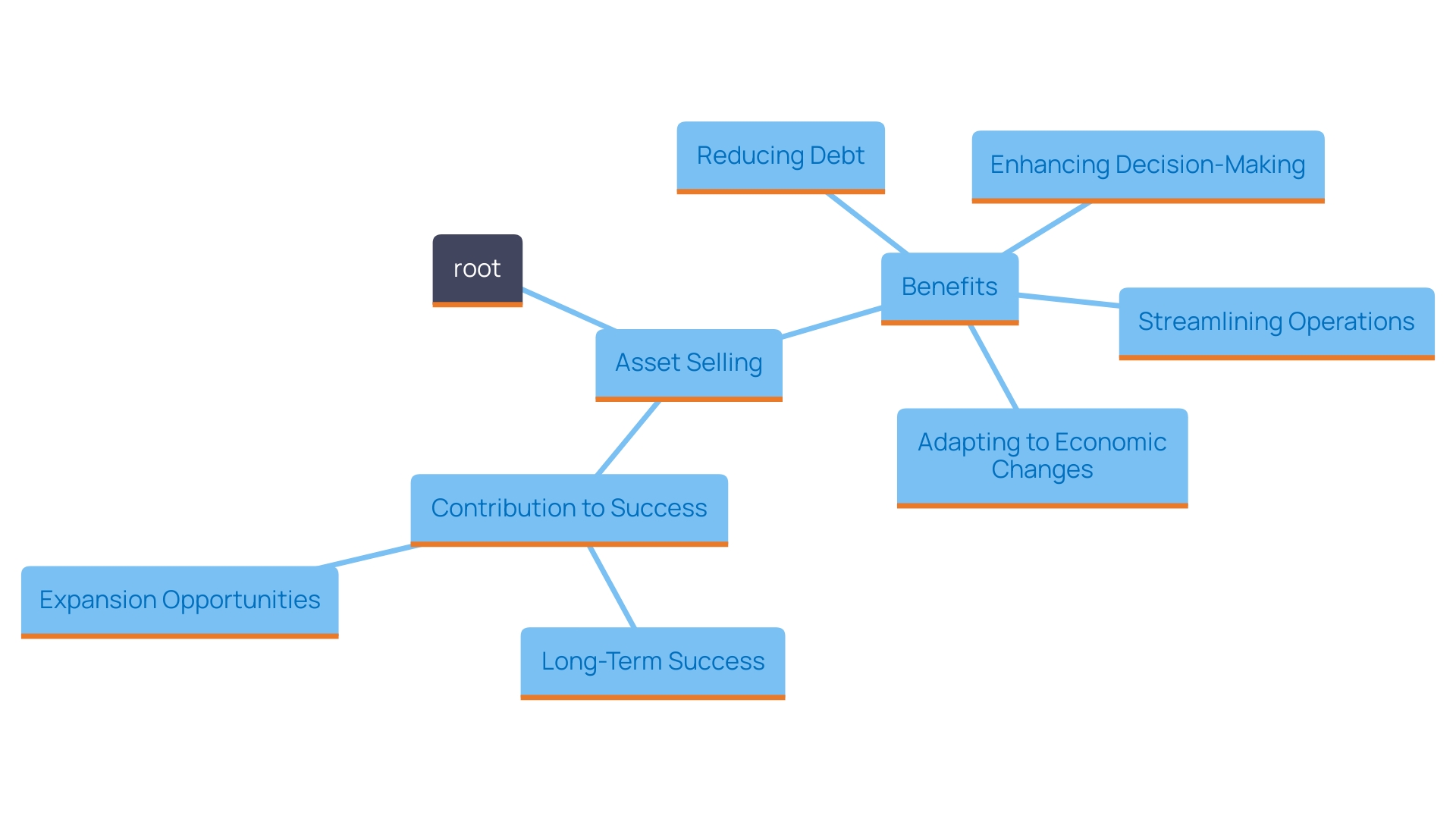
Equity Sale Advantages and Considerations
'Thinking about selling shares in a company requires consideration of the impact of current customer connections and brand reputation on the overall value while also taking into account potential risks involved in the process of selling off equity holdings. Thus a decision to move forward with a sale should be based on an evaluation of the company’s present state and its envisioned growth, over the next five to ten years. As suggested by Abhijeet Kaldate from Astra WordPress Theme, having a picture of where your venture is headed can help you determine whether accepting an attractive offer fits into your long term plans.'.
Selling goes beyond money exchanges. Dives into the realm of emotions and relationships that can deeply affect everyone involved in the transaction process. It's vital to grasp the buyers viewpoint as it plays a role in the negotiation journey. Knowing what they value goes beyond monetary figures and paves the way, for smoother discussions. Ultimately fruitful sales depend on establishing a partnership that guides both sides through the intricate details of the deal.
Companies examining types of changes such as selling off shares may encounter different results such as bankruptcy rates and levels of community investment diversity points out statistics It’s important to consider these aspects in relation, to the possibility of making money As the business environment changes especially during tough economic times organizations that adjust and surpass customer anticipations can stand out from competitors demonstrating the significance of strategic financial supervision throughout the selling phase
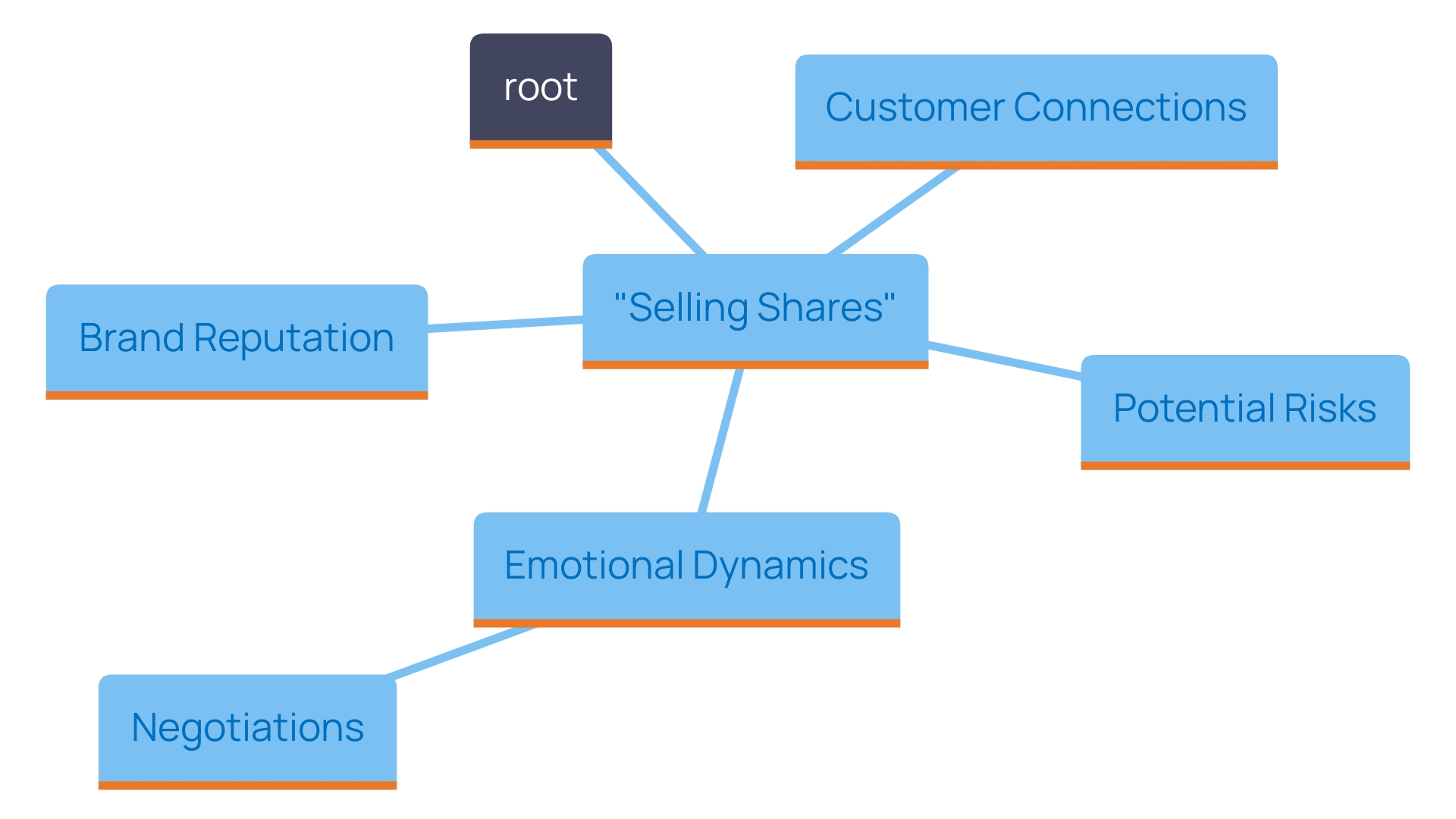
Conclusion
The grocery industry is experiencing shifts influenced by changing consumer tastes and higher competition levels with a focus on trends like the surge in e commerce and the desire for healthier choices being crucial for prospective shoppers to consider enabling them to pinpoint avenues, for growth and customize products to align with customer preferences.
Prior to making a purchase decision it is essential to assess the stability of the store its competitive environment and the demographics of its customer base. These considerations facilitate informed choices and strategic preparations. Moreover gaining insight into why the current owner's selling can offer valuable background information, on the businesss future prospects.
Potential purchasers should also make sure to understand the extent of the purchase package and what it encompasses – including stocks and rental agreements – to prevent any unforeseen expenses cropping up later on in the process. It is crucial to undertake due diligence to ensure that negotiations proceed smoothly and successfully. When it comes to securing long term prosperity in business ventures it is essential to have a financial strategy in place that addresses both day, to day operational expenses and cash flow management effectively.
By maintaining control of inventory and fostering robust connections, with suppliers business owners can enhance their profits and adjust to changing market conditions.
Understanding the laws and knowing how deals are structured are key parts of buying something important like a business or property.The decision, between selling assets or selling company shares comes with its benefits that can affect how things go in the future.
In summary; There are opportunities in the grocery industry for investors who are prepared to take action. With proper understanding and effective planning potential purchasers can enter this ever evolving market with assurance setting themselves up for success, in the long run.




